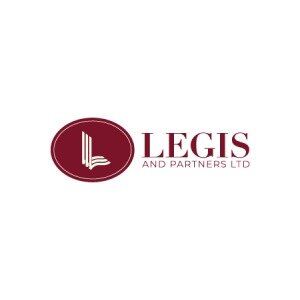Best Structured Finance Lawyers in Mauritius
Share your needs with us, get contacted by law firms.
Free. Takes 2 min.
Or refine your search by selecting a city:
List of the best lawyers in Mauritius
About Structured Finance Law in Mauritius
Structured finance refers to complex financial transactions that go beyond standard loans or debt instruments. In Mauritius, structured finance law encompasses the legal frameworks and regulations governing securities, asset-backed securities, project finance, securitization, derivatives, and cross-border investment transactions. Due to its robust legal system, strategic location, and flexible regulatory framework, Mauritius has emerged as a leading international financial center for structured finance solutions, attracting investors, financiers, and corporations across the globe.
As a jurisdiction, Mauritius offers a favorable environment for innovative finance structures. These include entities such as Special Purpose Vehicles (SPVs) and sophisticated capital market products designed to help businesses manage risk, improve liquidity, and access global markets.
Why You May Need a Lawyer
Structured finance deals are highly complex, often involving multiple jurisdictions, regulatory requirements, and tailored contractual arrangements. Here are some common situations in which legal assistance is essential:
- Structuring and establishing Special Purpose Vehicles (SPVs) for securitization or asset-backed transactions
- Navigating cross-border transactions and double taxation avoidance agreements
- Ensuring compliance with the Financial Services Act and other local regulations
- Drafting and negotiating finance and security documents
- Advising on regulatory reporting, disclosure, and licensing requirements
- Managing disputes or litigation arising from structured finance transactions
- Evaluating potential risks and advising on risk mitigation strategies
- Handling insolvency or restructuring of structured finance arrangements
A lawyer providing structured finance advice can help clarify obligations and protect your interests, ensuring the deal structure complies with all legal and financial regulations in Mauritius.
Local Laws Overview
Mauritius has developed a solid legal infrastructure for structured finance products. The key laws and regulatory considerations include:
- Financial Services Act 2007: Governs licensing and conduct of financial services, including global business companies and collective investment schemes.
- Securities Act 2005: Regulates securities offerings, asset-backed securities, derivatives, and market intermediaries.
- Companies Act 2001: Facilitates the formation of Special Purpose Vehicles and sets out company law principles applicable to structured finance transactions.
- Bank of Mauritius Act 2004 and Banking Act 2004: Oversee banking activities relevant to structured finance, such as lending, credit risk, and capital adequacy.
- Insolvency Act 2009: Prescribes the rules for insolvency, restructuring, and creditor rights for transactional entities.
The Mauritius Financial Services Commission (FSC) acts as the main regulator for non-banking financial services, ensuring transparency, investor protection, and compliance with international standards. Additionally, Mauritius has entered into several bilateral and multilateral treaties to facilitate international investment and dispute resolution, further supporting the growth of structured finance.
Frequently Asked Questions
What is structured finance in the context of Mauritius?
Structured finance involves designing financial products or transaction structures that help manage risk and facilitate complex funding solutions, such as securitization, project finance, or asset-backed securities, often using Mauritius as a base for international or cross-border deals.
Who regulates structured finance activities in Mauritius?
The principal regulator is the Financial Services Commission (FSC), which oversees all financial services except for banking, which is regulated by the Bank of Mauritius.
What are Special Purpose Vehicles (SPVs) and why are they used?
SPVs are distinct legal entities created to isolate financial risk for specific transactions, such as securitization or project finance. They are often used to hold assets or liabilities associated with a particular structured finance deal.
Are there tax advantages to conducting structured finance in Mauritius?
Mauritius offers a favorable tax environment, including access to a network of double taxation avoidance agreements and a relatively low corporate tax rate, making it attractive for structured finance transactions.
How does Mauritius support cross-border structured finance transactions?
Mauritius has strong regulatory standards, experienced service providers, and an extensive treaty network, enabling efficient cross-border investment and minimizing barriers to structuring international finance deals.
What are the main risks involved in structured finance transactions?
Risks include regulatory changes, credit and counterparty risks, legal enforceability of contracts, cross-jurisdictional complexities, and insolvency risks associated with SPVs or underlying assets.
What due diligence is required for structured finance deals?
Due diligence includes reviewing asset quality, compliance with laws and regulations, counterparties' credibility, regulatory approvals, and the legal structure of the transaction.
Can individuals set up structured finance deals, or is it limited to corporations?
Structured finance transactions are typically initiated by corporations, financial institutions, or investment funds due to their complexity and regulatory requirements, but individuals may participate as investors or through investment vehicles.
Is legal representation mandatory for structured finance transactions in Mauritius?
While not always mandatory, engaging a lawyer is highly recommended given the complexities and regulatory requirements associated with structured finance transactions.
What are the consequences of non-compliance with Mauritius structured finance regulations?
Non-compliance may lead to regulatory penalties, loss of licenses, unenforceable contracts, reputational damage, and legal action from counterparties or regulators.
Additional Resources
If you are seeking more information or official guidance regarding structured finance in Mauritius, the following resources may be helpful:
- Financial Services Commission (FSC) - Main regulator for non-banking financial services
- Bank of Mauritius - Central bank regulating banking activities
- Registrar of Companies - For company incorporation and corporate compliance
- Mauritius Revenue Authority (MRA) - For tax matters and treaties
- Chamber of Commerce and Industry - Business support and networking
- Mauritius Bar Association - Legal practitioner directory
- Approved corporate service providers and law firms specializing in financial services
Next Steps
If you require legal assistance with a structured finance matter in Mauritius, consider these steps:
- Identify and contact a legal firm or attorney with expertise in structured finance and Mauritian financial services law.
- Gather relevant documents and information about your intended transaction or project.
- Schedule an initial consultation to discuss your objectives, structure options, and potential legal or regulatory hurdles.
- Ask about the process, timeline, and fee structure to set realistic expectations.
- Work closely with your legal team to ensure compliance, protect your interests, and achieve a successful outcome.
Engaging a qualified structured finance lawyer early in the process will help navigate Mauritius's legal, regulatory, and fiscal frameworks, reducing risk and simplifying complex transactions.
Lawzana helps you find the best lawyers and law firms in Mauritius through a curated and pre-screened list of qualified legal professionals. Our platform offers rankings and detailed profiles of attorneys and law firms, allowing you to compare based on practice areas, including Structured Finance, experience, and client feedback.
Each profile includes a description of the firm's areas of practice, client reviews, team members and partners, year of establishment, spoken languages, office locations, contact information, social media presence, and any published articles or resources. Most firms on our platform speak English and are experienced in both local and international legal matters.
Get a quote from top-rated law firms in Mauritius — quickly, securely, and without unnecessary hassle.
Disclaimer:
The information provided on this page is for general informational purposes only and does not constitute legal advice. While we strive to ensure the accuracy and relevance of the content, legal information may change over time, and interpretations of the law can vary. You should always consult with a qualified legal professional for advice specific to your situation.
We disclaim all liability for actions taken or not taken based on the content of this page. If you believe any information is incorrect or outdated, please contact us, and we will review and update it where appropriate.
Browse structured finance law firms by city in Mauritius
Refine your search by selecting a city.

















